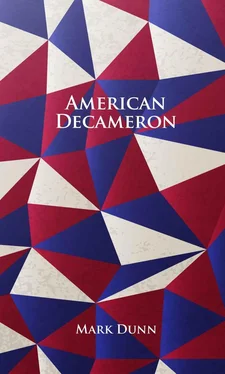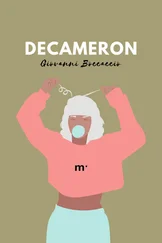When a death comes between a husband and wife, some things can never be mended. I lost both of my parents the week that my Aunt Kitty died, although two years were to pass before the fissure was formalized by divorce.
And I lost the beautiful toilet set that Aunt Kitty had given me, which I knew that I could never bring myself to use — the dainty comb and brush, the smart little hand mirror. I gave it all away to a little girl at my school who wept with joy over my unexplained generosity.
1927 ASSISIAN IN MASSACHUSETTS
I met her at the Majestic Restaurant downtown, although I’d seen her earlier that day in the Union Savings Bank. The restaurant isn’t there anymore. Most of this part of town burned down in February of the following year when the crew that had been hired to demolish the recently shuttered Pocasset Mills accidentally turned the job over to a far more efficient agent of destruction.
The 1928 fire was the most destructive in Fall River’s history. The Union Savings Bank was among the worst casualties. Not even the contents of its safety deposit boxes were spared by the conflagration.
Union Savings was Andrew Borden’s bank. You know President Borden, I’m sure. He was the poor fellow who was allegedly given forty-one whacks by his daughter Lizzie. Except that it wasn’t forty-one. It was actually eleven, and that very first whack had probably been enough to send him to his Maker. It was Lizzie’s stepmother Abby who, in fact, got the greater number of blows: eighteen or nineteen. They say that Lizzie despised her stepmother, who was bent on directing most of her husband’s fortune to her own family. There was more than sufficient motive for the indictment. But Lizzie, as you probably know, was acquitted.
Alice Rose Carteret had brought a flask. Two, in fact. It was the sort of thing you’d see in a speakeasy or some low-end dive: a woman brazenly fortifying her Coca-Cola with something puissant from her stocking. However, Alice Rose Carteret wasn’t anything like your typical speakeasy habitué. She was rich and respectable and ridiculously philanthropic, having devoted no small portion of her time and money to the Fall River Animal Rescue League, which she helped to found.
She’d been stood up.
A man was to meet Alice Rose at the Majestic that night and he didn’t show, and she reacted not by hanging her head in disgrace over the public snub, but by doing what any other thoroughly modern woman of the thoroughly modern 1920s would do: she repaired her assaulted pride with bootleg hooch. Soon finding herself both potted and pot-valiant she beckoned me, also dining alone, to join her. And I did — not even knowing at the time what a remarkable confession awaited me.
The encounter began with small talk: mindless banter about the weather, the movies. She took out her compact and recoiled from the image in the little mirror, proclaiming that the room’s harsh lighting made her look like one of the waxworks at Madame Tussaud’s. I contested this observation. I also suggested (with some delicacy) that we might decamp to a little watering hole I knew of a few blocks away: a murky, smoky establishment where I violated the Volstead Act on a regular basis.
She took to it immediately.
We settled into a booth. Her flasks now empty, she and I ordered from the menu. My stomach protested the resultant incursion all the next day.
“Do you know who died last week?” she asked. Alice Rose had not yet begun to garble her words, though her manner was casual, and she touched me often upon the arm with impromptu familiarity and eventually laced her fingers through my hair, this last encroachment upon my person accompanied by an invitation to share her bed that night. I perhaps owe it to you to note our respective ages in that ancient year of 1927. I was twenty-five, a reporter for the Globe (although nothing I was about to hear would she permit to be published — at least not until now, following her recent death). I supposed that Miss Carteret was in her mid-to-late fifties in 1927. She had been twice married. (Her biography served as prologue to the revelations that were to come.) But she so despised her two former husbands that she refused to perpetuate their surnames.
“Of course I know who died last week,” I said. “Emma Borden. Older sister of Lizzie. And Lizzie just the week before.”
“Do you find that odd? Two spinster sisters so estranged — both by distance and by the heart — dying in such quick succession?”
“I would think it somewhat odd.”
“And yet I’ll have you know that it isn’t odd at all.”
“Why do you say that?”
Alice Rose’s finger beckoned me to come close. We leaned forward across the table and nearly touched foreheads.
“I killed her.”
“Emma?”
Alice Rose nodded. “Right after Lizzie’s demise. She always preferred to be called ‘Lizbeth’ in those years that followed you-know-what, but I never could make the change. Anyway, shortly after Lizzie’s death, I took the train to Newmarket, New Hampshire, where Emma was living. Of course I knew that she would have already heard that her sister had died — from complications arising from that botched gall bladder surgery. Don’t you think that certain doctors ought to be strung up for their incompetence? But that’s a topic for some other night. I went to Newmarket to speak to Emma, to tell her — no, let me be honest — to demand from her a certain thing. Lizzie had toyed with me and it will probably be years before her will is probated, not that I have any doubt what we will find therein. I was not going to let Emma off so easily.”
“Alice Rose, I have to put you on notice here: I’m getting drunk. You’re going to have to start making some sense very soon or you’re going to lose me entirely.”
“Young man, I have every intention of telling you with absolute clarity what has been eating away at my very soul for all of these past four — what is it— five days. But I must exact a double promise from you in exchange.”
I made my face as open and amenable to hearing the proposal as possible.
“That you should first tell no one what it is that I intend shortly to impart to you, and that you should at a later hour make passionate love to me in the manner of that gorgeous, soft-spoken cowboy Gary Cooper in that new western picture The Winning of Barbara Worth .”
“So as I am to understand it, you’ll be Miss Worth and I am to be the cowhand who will ‘win you’?”
“Oh, you have won me already, dear boy. We must now simply consummate the transaction.”
In my gin-clouded head this sounded like a fair arrangement. For a woman of a certain age, Alice Rose Carteret was youthful in nearly every aspect.
Or I was perhaps even more intoxicated than I thought.
Our drinks refreshed and the Negro chanteuse on the gin-mill’s little stage having switched from bawdy Black Bottom jazz to a quiet, introspective, “he-done-me-wrong” torch song, Alice Rose leaned back in her chair and asked in a playful, not unmelodious voice of her own, “So, Blue Eyes. Do you think she did it?”
“The jury acquitted her,” I answered matter-of-factly. “It took them scarcely an hour, didn’t it?”
“How closely have you studied the case? The judge was notoriously biased in her favor. All of that incriminating inquest testimony was disallowed. And , as I recall, no one seemed to care. The whole town wanted her acquitted.”
“I wasn’t alive then, and I haven’t studied the case very closely.”
Alice Rose effected stupefaction. “You live in Fall River and don’t even know the details of the double murder trial that made the town world-famous?”
Читать дальше












